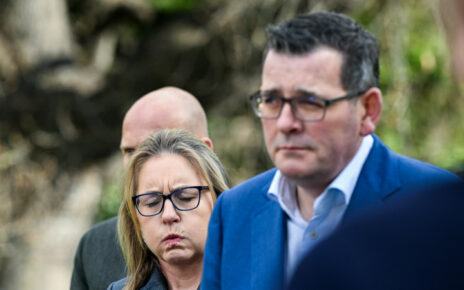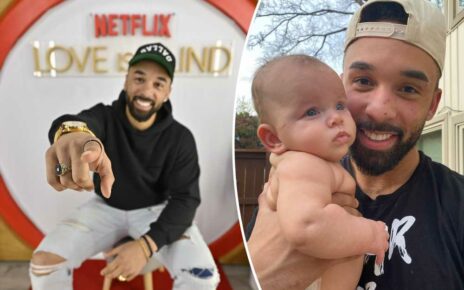When I joined the Newcastle dance company Ballet Lorent in 1996 aged 32, I was already considered an ‘older’ dancer.
Like footballers, dance professionals generally peak in their mid-20s and have hung up their ballet shoes a mere decade later. But even at the ripe old dancer’s age of 32, I was never aware that I was ‘old’.
In fact, my career worries were no different to those of any other dancer in this notoriously unstable profession: as a freelance performer, I mainly fretted about where my next role would come from.
So, when the curtain rises on the premiere of Rapunzel at Northern Stage in Newcastle this September, me and my 58-year-old body will be feeling particularly grateful to still be a part of this amazing dance company after over a quarter of a century, with a dance career spanning nearly 40 years.
As a 58-year-old woman, I’m very much part of the ‘invisible’ generation.
It’s sad but true that at my age, it’s generally expected that I’ll be a dowdy dresser, more than a little thicker around the middle and feeling proud if I manage to get my recommended light exercise (aquarobics, walking, golf) three times a week.
And yet, while I certainly can’t jump and spin as I used to and have had my fair share of injuries, including a recent torn meniscus in my knee that required surgery, I still spend my days intensely rehearsing and performing.
And, I have absolutely no intention of giving up.
In Rapunzel, I’ll be playing the witch. For me, this role encapsulates how women in our society are judged: a witch is usually an older, cantankerous female with unpleasant, sharp features, dismissed, embittered, past her sell-by date and living on the edge of society.

Older women are expected to behave in a certain way: we must be compliant and not challenge. And we must step aside and let the next generation take over.
Every day we’re bombarded with images of young female bodies, thick and thin in all the right places, and endless ads selling us products to hold back the years.
But when I look at my co-star, the wonderfully talented 26-year-old Benedicta Valentina Mamuini who plays Rapunzel, I don’t envy her youth and beauty, or compare the differences in our bodies.
I don’t even feel resentful that I can no longer pull off the exuberant leaps and bounds across the stage that she performs so brilliantly.
Instead, I feel grateful for the life experiences I can channel into my performances.
I first played the witch in Rapunzel 10 years ago. Coming back to the role after a decade, I’m bringing very different experiences to it. Life has changed, my body has changed, the world has changed.
In 2016, my mother was diagnosed with cancer, quickly followed by my father in 2017. They died within a short time of each other and losing them turned my world upside down. But it also made me acutely aware of the importance of living life to the full: enjoying the moment, never taking anything for granted, appreciating the people around you. It also brought me much closer to my sister.

All of the experiences we have in life change us, and for me as a dancer, they also alter how I approach my roles. Rather than simply replicating my performance of a decade earlier, I’m now bringing new depths of emotion and experience to it, and I think I am dancing the role better than ever.
As an older than average dancer, there are always people who are surprised that I can perform the way I do – I am still very agile! But it’s not something that I focus on, and I generally don’t tell people my age. It’s just not important to me.
In the dance world, I’ve always been a bit of an outlier. I wasn’t sporty or physical as a child – I was always the one who never made the team, much preferring to have my head in a book.
I didn’t even start to dance until I was 18, in a profession where most performers begin in early childhood.
That all changed when I saw a TV performance from the Nederlands Dans Theater, one of the world’s leading contemporary dance companies. I was transfixed by the graceful, seamless way the dancers moved, how they interpreted the music and told a story so vividly using their bodies alone.
I knew immediately that I wanted to emulate these dancers, and naïvely thought that it was something I could walk into – literally. One day not long after that TV show, I walked into Urdang, one of London’s best performing arts academies in Covent Garden, and asked if I could audition.
Amazingly, they said yes. Despite having no formal training, their founder Leonie Urdang must have spotted something in me and decided to give me a chance. I was over the moon – but I also knew it would be just the first of many challenges I would have to overcome if I wanted to realise my dream.
So, for the next two years, I worked as hard as I could, taking classes in ballet, tap and contemporary dance.
But my lack of training showed – I was far too behind the others who had been dancing since childhood and, after two years, they asked me to leave.

I was so embarrassed – I felt like I’d been given a chance and let everyone down. But what I lacked in technique I made up for in determination, and I resolved to find another way to succeed in dance.
To my 20-year-old self, walking away just wasn’t an option.
I auditioned for a one-year intermediate performers course at Trinity Laban in Greenwich, now known as the Conservatoire of Music and Dance, and when they accepted me I was determined to work harder than ever.
I was then lucky enough to be asked to join a contemporary dance group called Nexus Dance Company. I saw this as an important step in my career and an amazing opportunity to learn about the many different ways choreographers work. I was thrilled to be able to tour nationally, teaching workshops in schools and colleges – I felt that my hard work was finally starting to pay off.
In 1996, aged 32, and already well past my prime according to the world of traditional ballet, I was introduced to Liv Lorent, founder and artistic director of Ballet Lorent.
I knew that ballet companies have a very particular aesthetic for their dancers and fit the performer to the role, and it wasn’t a look that I had.

So I was thrilled to discover that Liv looks for the individual skill within the dancer, whether that’s contemporary or breakdance or even gymnastics, and then builds a performance around what they can offer.
This focus on bringing out people’s unique strengths, whatever their age, and creating roles that are perfect for them was so reassuring to me.
It made me realise that, while I can’t pull off the same moves as a 20-year-old, my style, experience – and age – are what make me unique. I have danced with Ballet Lorent ever since and consider them to be my second family.
I’m now approaching 60 and I have no intention of giving up dance.
I think the idea of a dancer as a young, super lean, hypermobile girl is changing – thank goodness – and we’re starting to understand so much more about sports and mobility and the importance of movement.
The body has to be strong, but the mind absolutely has to match it.
For me, this is what dance is about. It’s part of me, it’s how I express myself.

And it’s not just professional dancers who can embrace the communication of dance. I trained to work with people living with Parkinson’s disease, and with women who have been diagnosed with cancer.
I run movement classes, where we work on posture, coordination and balance. Mobility is so important, as is being seen as a creative individual – as a dancer – and not just a patient.
Dance is social, it’s fun, it releases endorphins, it exercises your brain as well as your body. And it’s liberating! Whether you want to waltz, tap, clog dance or take up ballet in your 50s, 60s, 70s or 80s, you can do it.
Of course, everyone has their limits. But I feel passionately that dance is a way of life, and it brings so many benefits to everyone, whatever their age or ability.
I want to share it with as many people as I can, for as long as I can.
Age is Just a Number
Welcome to Age is Just a Number, a Metro.co.uk series aiming to show that, when it comes to living your life, achieving your dreams, and being who you want to be, the date on your birth certificate means nothing.
Each week, prepare to meet amazing people doing stereotype-defying things, at all stages of life.
If you have a story to share, email [email protected]
Source: Read Full Article


